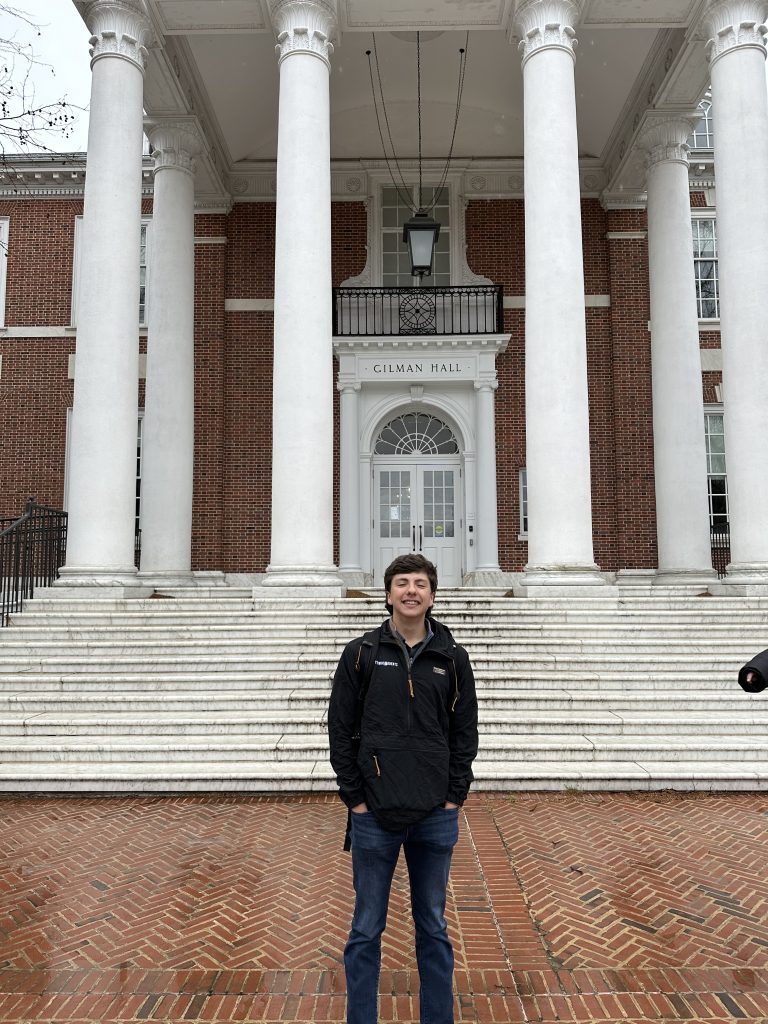
Most, if not all, people have ideas about something. These ideas can be minuscule and seemingly unimportant, but if an idea is grown in a supportive environment, it can develop into a question which, with some further research, can turn into a short paper. Continued cultivation can grow that original idea into a research essay and an opportunity to present your own research in a national conference as an undergraduate.
This is the progression for Carter Sheldon, a senior religious studies major at the University of Alabama with a minor in history. Carter is originally from Grayson, Georgia a small town outside of Atlanta and loves fried chicken (he wanted to mention this). Carter entered the University as a religious studies major with a goal of attending seminary post-graduation.
Carter’s story begins with an idea. In Spring of 2021 Carter decided to join TKE and be a part of Greek life here at the University of Alabama. This decision would open Carter up to new possibilities and a different side of what college can be. Within Greek life there can be a level of brotherhood or sisterhood that is exceptional, and Carter developed an insider’s perspective on aspects of Greek life at the university of Alabama.
Carter connected his observations of Greek life with his Religious Studies coursework. In the Fall of 2022, Carter took Religion in the American South (REL 415), which dives into the study of identity formation. While in this class Carter was drawn to the idea of a “Greek life identity” and how it relates to gender and social relations. From this idea, he developed further questions about Greek life, social groups, and identity formation, bringing his own perspective and passion to this project. With the assistance of faculty members Dr. Merinda Simmons and Dr. Richard Newton, Carter pursued a broader undergraduate research project on this topic.
Continuing to work on this, in March of 2023, Carter flew to Baltimore for two days to present his research at The Johns Hopkins Research Symposium. While there he was able to listen to other humanities majors present their own research and refined his own presentation for the next day. During the Q&A section of his presentation Carter was able to be fully prepared for this section because of previous preparations with Dr. Newton and Dr. Simmons as they wanted him to be fully knowledgeable on his topic. This preparation was beneficial because if one is going to present their research, they should be fully prepared for any possible question that could be asked. Carter was able to get a taste of how much it takes to be fully prepared within the academic field of presenting their own research.
But what does this have to do with a degree in Religious Studies?
The topics that we pursue in Religious Studies apply to many aspects of groups, identities, and social relationships that extend beyond what people commonly classify as religion. As Carter’s progression illustrates, insights from coursework in Religious Studies help us understand our experiences and communities in new ways. Plus, the interaction with faculty and other students provides a space for ideas to grow into research projects and eventually formal presentations at a national conference.
This post is part of a series that highlights the range of accomplishments that students in
Religious Studies achieve while at the Capstone and in their lives after graduation. We all hear
questions like, “What are you going to do with a Religious Studies degree?” As this series makes
clear, the skills that students develop in Religious Studies, including critical thinking, interacting
with diverse viewpoints, social analysis, and the ability to communicate to multiple audiences,
contribute to a broad range of activities and careers.